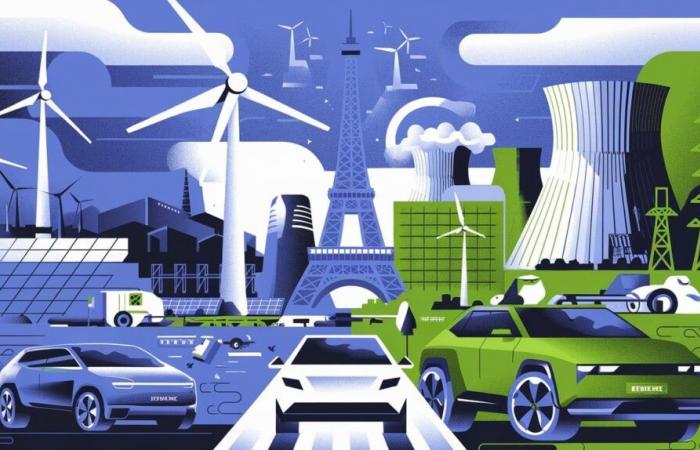
France is aiming for an ambitious 50% reduction in its greenhouse gas emissions by 2030, with a major shift towards carbon-free electricity. Discover the government's plan to meet this climate challenge…
France is not shy when it comes to the fight against climate change. On Monday, the Ministry of Ecological Transition reaffirmed the country's ambitious objective of halving its gross greenhouse gas emissions by 2030 compared to 1990. A major challenge which will require an in-depth transformation of our energy mix.
A major shift towards carbon-free electricity
To achieve this climate objective, France is banking on a gradual exit from fossil fuels. According to the Multi-Annual Energy Program (PPE) and the National Low-Carbon Strategy (SNBC), the share of oil and gas in final energy consumption will fall from 60% in 2022 to only 42% in 2030.
In return, theelectricityessentially decarbonized in France thanks to nuclear power, will see its role increase significantly. Its share in final consumption will increase from 27% today to 34% in 2030.
A new lease of life for French nuclear power
To support this electrification, the government confirms the launch of a program to build new EPR2 nuclear reactors. The objective: to achieve annual production of at least 360 TWh, compared to 279 TWh in 2022. An increase in the availability of the existing fleet is also planned.
Nuclear power remains a pillar of French energy strategy, despite criticism
An industry expert
Renewable energies booming
But the energy transition French will not be achieved without massive development of renewable energies:
- Solar: objective of multiplying installed power by up to 6, with a rate of at least 5.5 GW/year
- Onshore wind: maintaining the current rate of 1.5 GW/year to double the fleet by 2035
- Offshore wind: 18 GW targeted in 2035, or more than 10% of the country's electricity production
At the same time, the government is counting on a 30% reduction in energy consumption in 2030 compared to 2012. An essential effort to achieve carbon neutrality.
Heading towards electromobility
In transport, the executive is aiming for acceleration of the transition to electric. The objective is that in 2030, two thirds of vehicle sales will be electric and that they will represent 15% of the rolling stock. A major challenge when we know that they currently only weigh 2.2%.
France is thus adopting an ambitious roadmap to meet the climate challenge. It remains to be seen whether these objectives will be met within the set deadlines. The mobilization of all stakeholders will in any case be essential to succeed in this historic shift.
France





